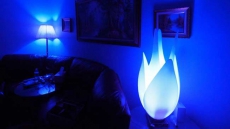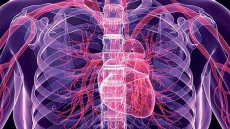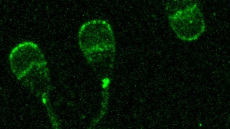A new non-invasive MRI (magnetic resonance imaging) technology developed by an Indian-origin scientist-led research team can detect Alzheimer's disease in its earliest stages.
The MRI probe can detect the amyloid beta brain toxins responsible for onset of the disease. The accumulated toxins show up as dark areas in MRI scans of the brain.
"Non-invasive imaging by MRI of amyloid beta oligomers (toxins that damage the neurons) is a giant step forward towards diagnosis of this debilitating disease in its earliest form," said Vinayak Dravid, a professor at Northwestern University, US.
This ability to detect the molecular toxins may one day enable scientists to both spot trouble early and better design drugs or therapies to combat and monitor the disease.
"This MRI method could be used to determine how well a new drug is working," Dravid added.
This new MRI probe technology is detecting something different from conventional technology: toxic amyloid beta oligomers instead of plaques, which occur at a stage of Alzheimer's when therapeutic intervention would be very late.
Amyloid beta oligomers now are widely believed to be the culprit in the onset of Alzheimer's disease and subsequent memory-loss.
"We have a new brain imaging method that can detect the toxin that leads to Alzheimer's disease," William Klein from Northwestern University, US, pointed out.
The nontoxic MRI probe was delivered intranasally to mouse models with Alzheimer's disease and control animals without the disease.
In animals with Alzheimer's, the toxins' presence can be seen clearly in the hippocampus in brain's MRI scans.
No dark areas, however, were seen in the hippocampus of the control group.
The study appeared in the journal Nature Nanotechnology.




